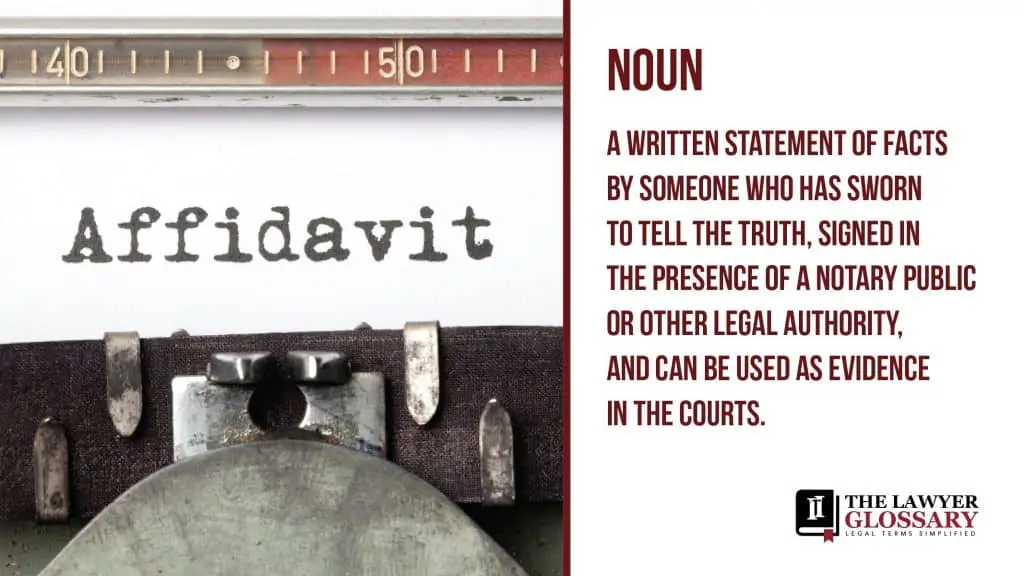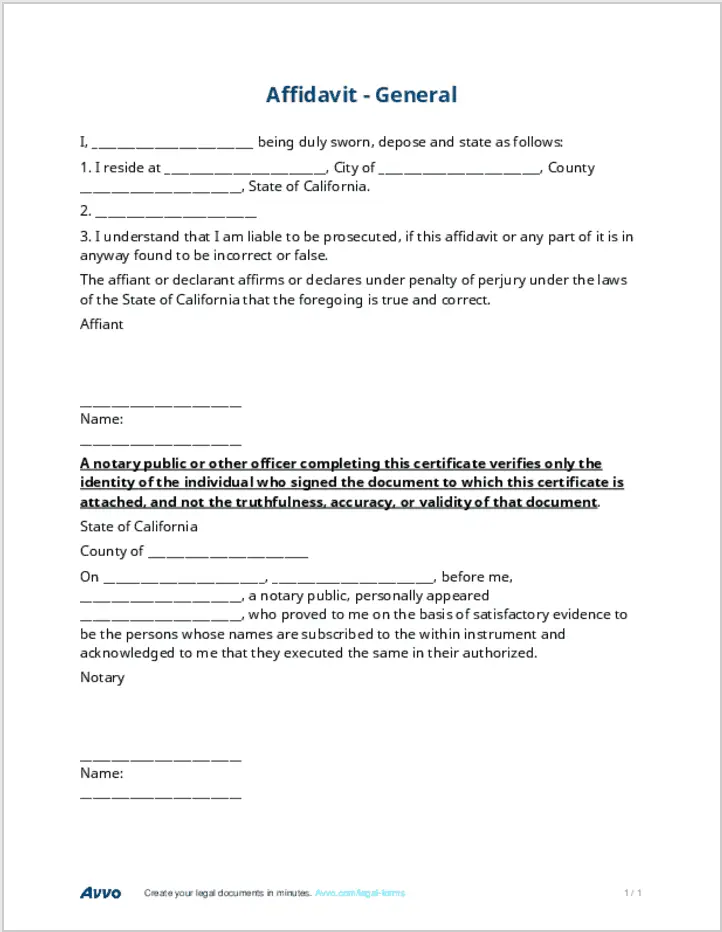What Is An Affidavit? Law Definition
In law, an affidavit is a written statement of facts by someone who has sworn to tell the truth, signed in the presence of a notary public or other legal authority, and can be used as evidence in the courts.
2-Minute Video Defining Affidavit Law Meaning
 Related Terms:
Related Terms:
Affiant:
This is the legal term of the person making the sworn statement on the affidavit. If you’ve given your statement on an affidavit, you are the affiant.
Notary Public:
The state government authorizes certain officials to draw up, witness and certify documents, contracts and other legal forms. A notary public can be thought of as an impartial witness who will swear that you put a certain statement in writing on a specific date, and they will add their own signature and official stamped seal in order to make the affidavit or other document official.
Jurat:
The jurat is the sworn portion of the affidavit. A notary must administer an oath and the jurat must contain the elements of when, where, and before whom the statement was sworn.
How To Write An Affidavit
An affidavit gathers essential facts and evidence outside the courts for a case. Filling one out can happen at a number of locations including the conference room of a law firm or at the offices of a notary public where a court authorized representative can watch you sign the affidavit.
Instances where an affidavit might be helpful or necessary include:
- Witness testimony after a car wreck
- Contract negotiations
- Finalizing the estate after someone dies without a will
- Verifying an address to allow a child to attend school in a certain district
- In immigration proceedings, demonstrating that financial support is available to cover expenses while citizenship is pursued
- Changing your name for marriage, divorce, or other reasons
Three elements an affidavit must include to become official are:
- The Written Oath where a person (the affiant) swears that the specific facts they wish to declare are true;
- The Signature of the one making the written statement;
- The Certification by a notary public or other qualified official stating that an oath affirming the truth of the statements in the affidavit was witnessed in person.
1-min Audio Clip With Attorney Darryl Isaacs Discussing Affidavit Meaning:
Define Affidavit – Let’s Break It Down In Layman’s Terms
There are many times when a written statement becomes extremely valuable for introducing evidence into a case. You might want to make sure your version of the facts about a car wreck doesn’t get forgotten or changed, so you’ll write it down not just for your own records, but so that it can be officially used in a court case.
An affidavit is similar to getting on the witness stand and raising your hand and swearing to tell the truth – but it’s the written version of that practice. An affidavit is an opportunity for a person to get their facts organized by writing them down, swearing before a court-approved representative that everything is accurate and true, signing it in front of them, and getting their stamp or seal on the documents to make it legal.
You might hear “affidavit” used like this, here’s what it means:
“Our client won’t be able to appear in person, so we’ll hand over her affidavit to the judge instead.”
Translation:
For health reasons, a person sometimes cannot leave their home or the hospital to appear in public. The courts allow a written statement, made under oath and signed and sealed by a notary, to be used as evidence in a case.
“The affidavit certifies that upon her death, your aunt intended to transfer all of her property to her daughter.”
Translation:
The aunt in this scenario took steps to make a sworn statement of her intentions after she dies, she had it witnessed and notarized by an official of the courts, and the written and signed statement makes clear that, when she dies, the property should be given to her daughter.
Affidavit Form Sample
The general affidavit template below is a sample from the folks at Avvo. Click the image to visit their “Create an Affidavit” page.
Recently added glossary terms:

 Related Terms:
Related Terms:









